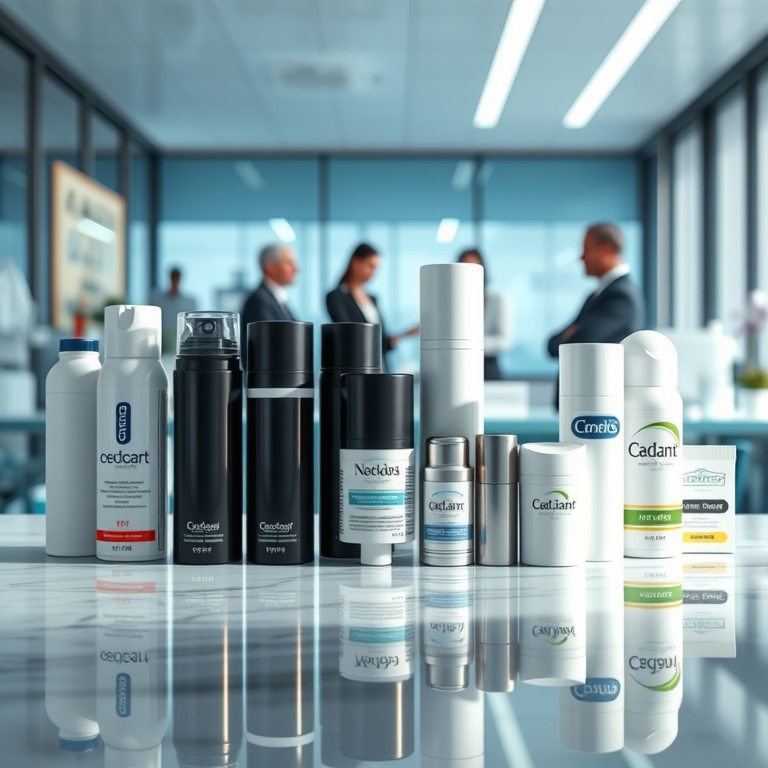In a significant move that has sent ripples throughout the personal care industry, the U.S. Food and Drug Administration (FDA) has issued a recall of several popular deodorant products due to emerging health concerns and risks associated with chemical ingredients. This decisive action highlights the agency’s ongoing commitment to consumer safety and underscores the importance of stringent regulatory oversight in the cosmetics sector.
The recall, announced this week, targets a range of deodorants marketed by well-known brands, which have long enjoyed consumer trust and loyalty. The FDA’s decision stems from recent findings that raise alarms about the presence of potentially harmful chemicals in these products. At the heart of the controversy is benzene, a chemical compound identified as a human carcinogen by various health agencies. Benzene is not an intentionally added ingredient in deodorants but can appear as a contaminant during manufacturing processes.
This recall comes after a series of independent laboratory tests revealed benzene levels in certain deodorant products that significantly exceed the safety threshold. The FDA’s action reflects a growing body of research linking benzene exposure to serious health risks, including various forms of cancer. The agency’s swift response underscores its proactive stance in safeguarding public health, even as it prompts a broader conversation about ingredient transparency and safety in consumer products.
The deodorant brands affected by the recall have responded with varying degrees of urgency and transparency. Some have voluntarily halted production and distribution of the implicated products, pledging full cooperation with the FDA to resolve the issue promptly. Others have initiated their own investigations, aiming to identify and rectify the source of contamination. These actions, while necessary, also reflect the heightened scrutiny the industry faces as consumers demand greater accountability from manufacturers.
For consumers, the recall may prompt a reevaluation of their personal care routines. Deodorants are a staple in the daily lives of millions, valued for their efficacy in controlling odor and perspiration. However, the revelation of potential health risks associated with their use poses a dilemma for those seeking safe and reliable options. In response, industry experts advocate for increased awareness and education on product labels and ingredients, empowering consumers to make informed choices.
The implications of the recall extend beyond immediate consumer concerns, potentially reshaping the regulatory landscape for cosmetics and personal care products. Historically, the cosmetics industry has operated under relatively lenient regulations compared to other sectors, such as pharmaceuticals or food. However, the FDA’s recent actions signal a shift toward more rigorous oversight, aligning with a broader trend of enhanced consumer protection measures.
Industry observers note that this recall could catalyze legislative efforts to modernize cosmetic regulations, which have remained largely unchanged since the enactment of the Federal Food, Drug, and Cosmetic Act in 1938. Calls for reform have gained traction in recent years, with advocates pushing for greater transparency, mandatory reporting of adverse events, and clearer labeling requirements. The current situation underscores the urgency of these reforms, as stakeholders across the spectrum recognize the need for a regulatory framework that keeps pace with scientific advancements and consumer expectations.
In the wake of the recall, companies in the personal care sector may face increased pressure to invest in research and development aimed at identifying safer alternatives to potentially harmful chemicals. This pivot towards innovation and safety could foster a new era of product development, characterized by cleaner formulations and the use of naturally derived ingredients. Such a shift would not only enhance consumer trust but also bolster brand reputation in a competitive market.
Moreover, the recall has implications for global supply chains, as many deodorant manufacturers source raw materials from various international suppliers. Ensuring the purity and safety of these inputs will require robust quality control measures and collaboration across the supply chain. This focus on supply chain integrity could have far-reaching effects, prompting companies to reevaluate their sourcing strategies and strengthen partnerships with suppliers committed to high standards.
The FDA’s recall of popular deodorants over health concerns and chemical risks serves as a pivotal moment for the personal care industry. It underscores the critical importance of consumer safety and the role of regulatory bodies in enforcing standards that protect public health. As the industry navigates the challenges and opportunities presented by this situation, the ultimate goal remains clear: to provide consumers with products that are not only effective but also safe and trustworthy.
In conclusion, the recall is a reminder of the dynamic interplay between consumer safety, regulatory oversight, and industry responsibility. It highlights the necessity for ongoing vigilance and collaboration among stakeholders to ensure that personal care products meet the highest standards of safety and quality. As the industry evolves in response to these developments, the lessons learned from this recall will undoubtedly shape the future of personal care and cosmetics, driving innovation and fostering a culture of transparency and accountability.

Leave a Reply